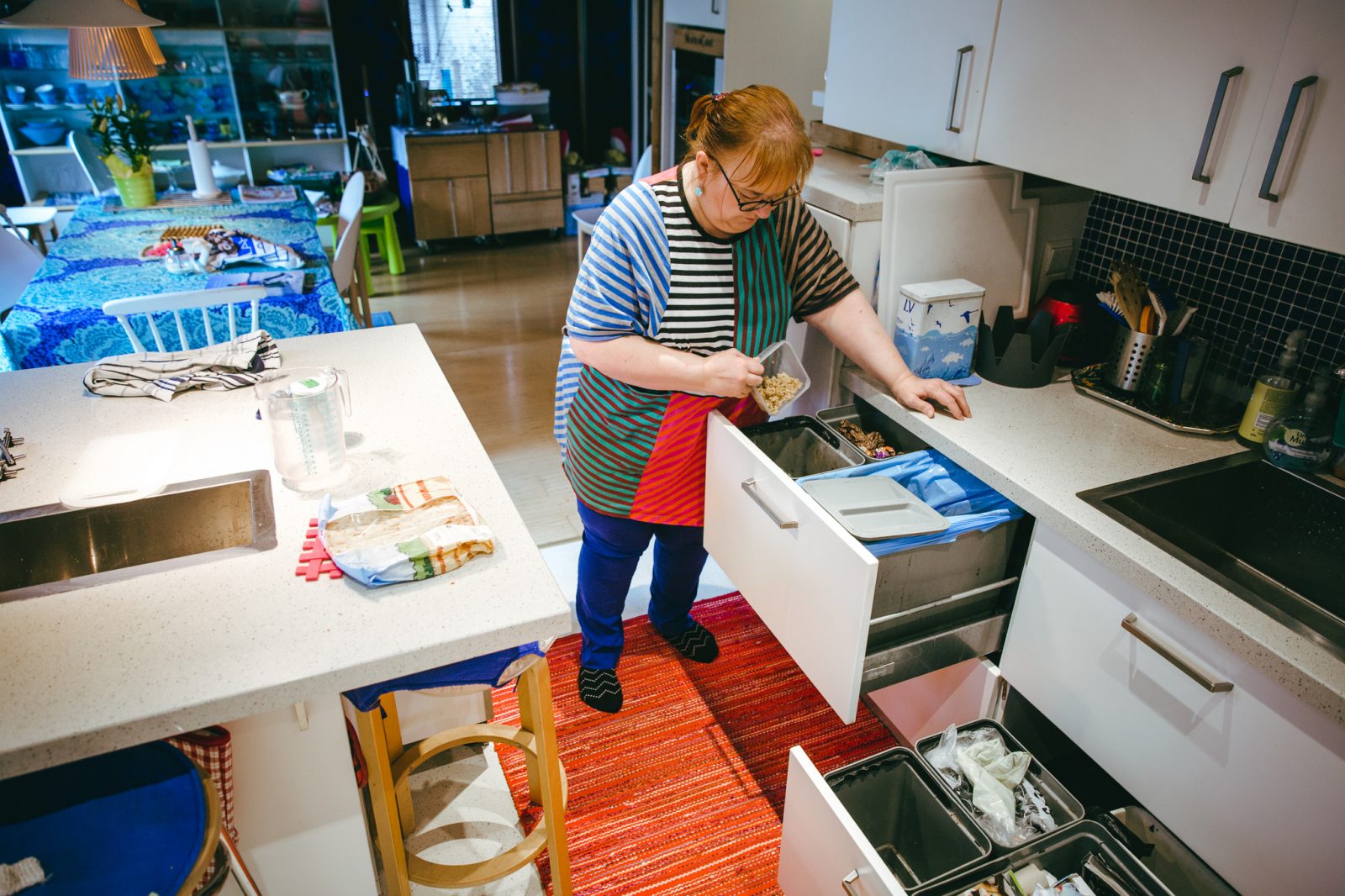In the Finnish City of Lahti, waste is sorted into separate containers at home, in schools and at workplaces. If a building has at least ten apartments, there must be at least seven sorting containers for different types of waste.
Recycling is possible for paper, cardboard, metal, glass, biowaste as well as energy waste, which also includes plastics. Only non-hazardous waste that does not belong in any of the other containers should end up in the mixed waste container.
Even every single-family detached house must have at least two different waste containers, one for mixed waste and one for energy waste. In addition to plastic food wrappers, other plastic that is generated in the household can also be placed in the energy waste container: from plastic buckets to foam plastic from online shopping.
What is special about Lahti is that energy waste, including plastics, is collected from every home. Elsewhere in Finland, plastic is collected from larger housing companies, but residents of detached houses have to take their plastic waste to centralised collection points. These collection points only accept clean packaging waste. Plastics often end up in mixed waste and then incineration.
Plastic is separated from energy waste for use as material
After energy waste has been collected from homes, the plastic is separated from other energy waste at the sorting plant of Salpakierto Ltd, a municipally owned waste company. The plant, called LATE, started operations in 2017. The company is owned by the City of Lahti and other municipalities in the surrounding area.
Different types of plastic are separated from each other at the plant, meaning that residents do not necessarily have to separate plastics in their homes.
– Our LATE sorting plant is the first of its kind in Finland. To date, we have recovered approximately three million kilograms of recyclable plastic from energy waste, says Salpakierto’s Managing Director Johanna Rusanen.
Material recycling needs to be further improved
The aim of Finnish and EU-wide waste legislation is to reduce the amount of waste as well as to increase its reuse and recycling. Of the municipal waste generated, 43% (2020) is now utilised as material.
The EU has set targets for the recycling of municipal waste, including packaging plastic, throughout the Union. The recycling targets for municipal waste are:
- 55% in 2025;
- 60% in 2030; and
- 65% in 2035.
The recycling targets for packaging plastic are:
- 50% in 2025; and
- 55% in 2030.
– Each of us can influence the generation of waste or the further utilisation of the material created through our own choices. We can buy products with consideration and only when needed, acquire things that are durable and repairable instead of disposable, as well as favour recycled products and ones with minimal packaging, says Päivi Sieppi, Environmental Guidance Manager at Lahti
More information:
Environmental Guidance Manager Päivi Sieppi, tel. +358 50 559 4090
Managing Director Johanna Rusanen, Salpakierto Ltd, tel. +358 400 877 254
Leena Seppälä, Environmental Manager, Salpakierto Ltd, tel. +358 50 324 7428
